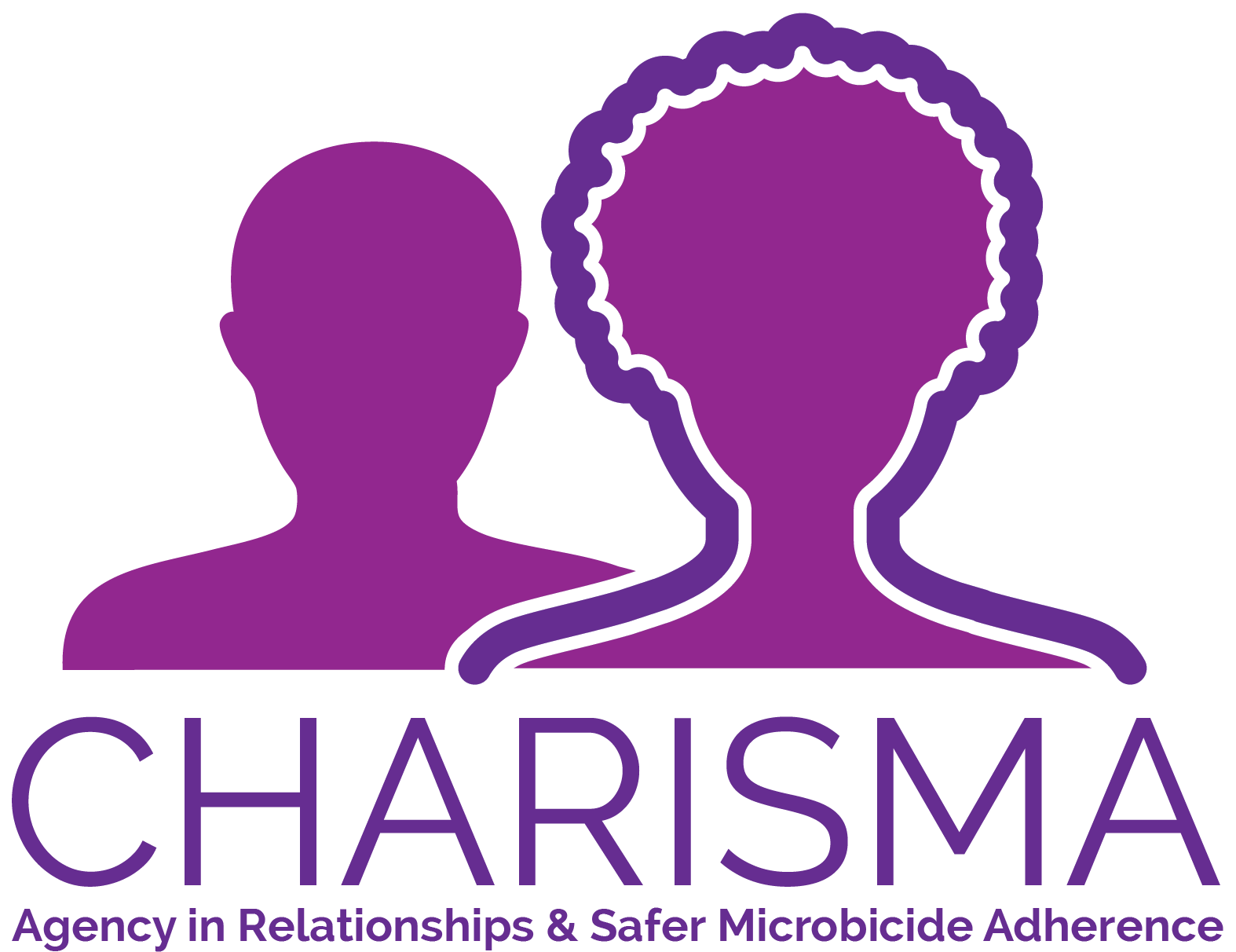CHARISMA supports efforts to: increase women’s agency to safely use ARV-based HIV prevention, to engage male partners in HIV prevention, and to overcome harmful gender norms and reduce intimate partner violence (IPV).
- HOPE intervention design underway.
- Social harms and IPV data analysis continued.
- Scaled social benefits-harms tool conceptualized.
- Qualitative research study underway.
HOPE intervention design underway. The CHARISMA intervention is intended to be added on to HOPE, the open label extension study of ASPIRE. A secondary data review and formative data collection will inform the development of a model intervention to: 1) measure what kind of male partner support or harm HOPE participants are experiencing; 2) support participants’ agency to safely and consistently use the dapivirine vaginal ring; and 3) constructively engage men in women’s microbicide use, as appropriate.
Social harms and IPV data analysis continued. The team continues to review the extent and types of social harms and intimate partner violence (IPV) reported in recent MTN and CAPRISA microbicide trials. Researchers will then evaluate how these events are measured in study communities to inform the development and finalization of the Social Benefits-Harms Tool (SBHT) and the counseling component of the intervention. Once finalized, the tool will be used to assess where women are on the continuum of partner involvement and support of microbicide use, enabling intervention activities, including the counseling topics and approach, to be tailored to women’s individual circumstances. Additionally, researchers conducted secondary analyses of male engagement data from interviews with CAPRISA 008 participants and staff.
Scaled social benefits-harms tool conceptualized. To identify, measure, and address the ways in which gender norms and power differentials affect women’s agency, the team drafted a conceptual framework for the SBHT based on a literature review of 5,772 articles.
Qualitative research study underway. Wits RHI, RTI and FHI 360 received ethical approvals for a formative research study with ASPIRE trial participants and their partners. The team trained interviewers in Johannesburg on qualitative methodology, the study protocol, and the study interview guides, then researchers conducted pilot interviews with colleagues. The study team will now complete formative in-depth interviews and will use the subsequent data analysis to inform the HOPE CHARISMA intervention.
No Responses
Leave a Reply

